Ubiquinone vs Ubiquinol: Understanding the Differences and Choosing the Right CoQ10 Supplement
Understand the key differences between Ubiquinone & Ubiquinol, their benefits for energy, heart health, & aging, and choose the right CoQ10 for your needs.
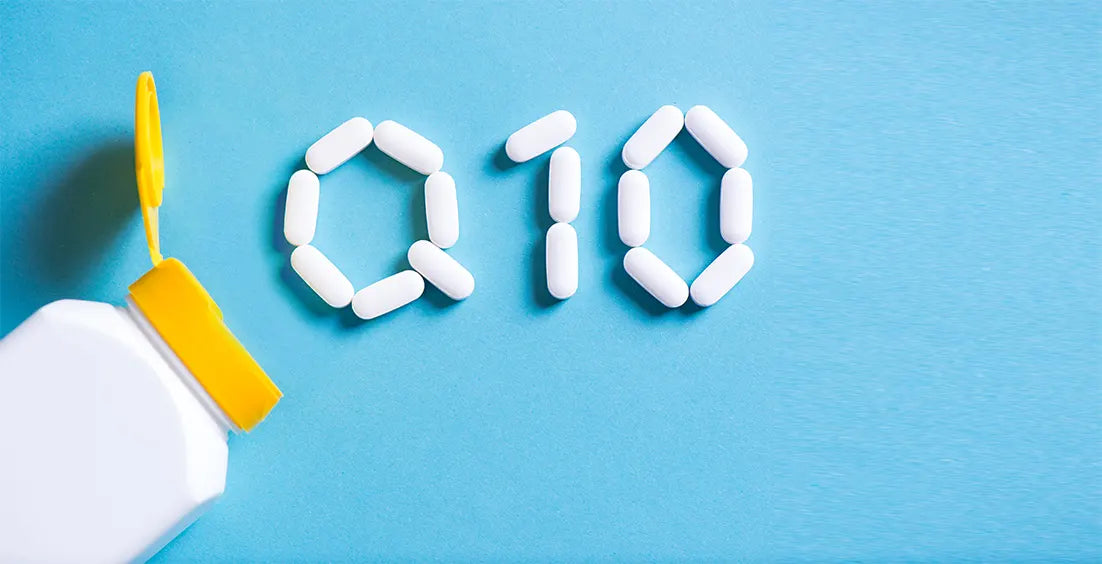
Your body needs energy to function, and Coenzyme Q10 (CoQ10) plays a crucial role. The supplement helps your cells produce energy and shields them from harm. But when looking for a CoQ10 supplement, you'll find two types: Ubiquinone and Ubiquinol. Understanding the difference can help you make the right choice.
Ubiquinone is the oxidized form, while Ubiquinol is its active version and is ready for use. Avid users believe Ubiquinol absorbs better and is more effective, while some say the body naturally converts Ubiquinone as needed. This is important for people focusing on heart health, energy levels, fertility, and aging.
So, which one should you take? Younger people and those with good metabolism can usually convert Ubiquinone and Ubiquinol without issues. However, this process slows down as you age, making Ubiquinol the better option for older adults or those with certain health conditions.
This article will discuss the differences between Ubiquinone and Ubiquinol, including absorption rates, dosage recommendations, and benefits. By the end, you'll clearly understand which form of CoQ10 suits your needs best and how it can support your overall health.
Read more: Health Benefits of CoQ10
Key Takeaways
- Ubiquinone is the oxidized form of CoQ10, while Ubiquinol is the active, reduced form.
- The body naturally converts Ubiquinone into Ubiquinol based on cellular needs.
- Both forms are effective, but Ubiquinol may be better for older adults or those with absorption issues.
- Choosing between Ubiquinone and Ubiquinol depends on age, health condition, and budget.
Ubiquinone vs Ubiquinol: What's the Difference?
When taking Coenzyme Q10 (CoQ10), the most crucial question is: Do I use Ubiquinone or Ubiquinol? While both have a critical role in producing energy and general wellness, knowing about them can allow you to make an educated decision.
The Chemical Structure Difference
The key distinguishing feature between Ubiquinone & Ubiquinol is in their chemical structure:
- Ubiquinone is a reduced form of CoQ10
- Ubiquinol is its hydrogenated, reduced form with added hydrogen atoms.
Think of it as a rechargeable battery—your body naturally converts Ubiquinone into Ubiquinol when needed and vice versa. This process supplies your cells with the CoQ10 they need to function effectively.
Ubiquinone vs. Ubiquinol Bioavailability
One of the most debated claims about CoQ10 is its form and absorption. According to some studies, Ubiquinol is easier for your body to break down. Therefore, the supplements have a more significant effect in raising your level of CoQ10.
However, according to other studies, including a 2020 article in Nutrients, when consumed, Ubiquinone is metabolized in your gut into Ubiquinol, and both forms can effectively boost your level of CoQ10.
Ubiquinol vs Ubiquinone Dosage
Studies show that 100-200 mg daily is a general dosing for general wellness for CoQ10. For specific medical issues, including heart function and fertility, dosages of 400 mg a day can be beneficial.
- For younger adults and healthy digesters - Ubiquinone is a cheap alternative
- However, for older adults and individuals with absorption problems, Ubiquinol can work best when it is in its active state.
Here are some of the factors that affect how ubiquinone and ubiquinol work:
Age
As we age, our ability to convert Ubiquinone to Ubiquinol decreases. Young adults can convert Ubiquinone effectively, making it a convenient and affordable alternative. But older adults can benefit even more from Ubiquinol, as it is in its active form and doesn't require any additional conversion.
Health Status
People with specific medical ailments, including heart disease, chronic fatigue syndrome, and fertility, can benefit more from Ubiquinol. As it is in its bioactive form, it can deliver its benefits quicker, particularly for those with high oxidative stress and those with a demand for increased levels of CoQ10.
Absorption Efficiency
Some people have a naturally poor absorption of nutrients through gastrointestinal disease or medical conditions such as Crohn's disease or irritable bowel syndrome (IBS). In these instances, Ubiquinol will be a preferable option in its unmetabolized form, as it will become immediately bioavailable to the body and not require conversion.
Budget
Ubiquinone is cheaper and easier to access than Ubiquinol. If your absorption is not an issue and your metabolism is healthy, then utilize Ubiquinone to save and enjoy the fruits of CoQ10 at the same time. Otherwise, if the budget is not a concern and for best absorption, utilize Ubiquinol, for it will be worth your money.
Diet and Lifestyle
People who consume a healthy, fat-containing diet will have enhanced absorption of one form of CoQ10 or the other. Since CoQ10 is fat-soluble, taking it with a meal rich in healthy fats will have a high absorption level. Poor diets necessitate a bioavailability form, such as Ubiquinol.
Which is better between Ubiquinol and Ubiquinone?
There is no conclusive answer to whether one is superior to the other regarding Ubiquinol and Ubiquinone. Recent studies show that Ubiquinol is better in absorption. However, some research indicates that both forms naturally convert in the body according to its requirements. Thus, Ubiquinone and Ubiquinol can effectively contribute to energy production and overall wellness.
However, the most effective one will depend on individual factors. Senior citizens will benefit from Ubiquinol, for with age, the efficiency in converting Ubiquinone in the body lessens. Others with absorption and gastrointestinal issues will also prefer taking Ubiquinol, which is active and can circumvent any absorption issue at its origin. On the other hand, Ubiquinone is less expensive and well-researched, and thus, a convenient alternative for individuals with no issue of absorption.
Ultimately, both forms of CoQ10 have equivalent benefits, and it comes down to individual health needs, price, and efficiency in metabolizing supplements.
Choosing the Right CoQ10 for Fertility: Ubiquinol or Ubiquinone?
CoQ10 plays a significant role in reproductive function, protecting mitochondrial function in eggs and sperm. "Is ubiquinol or ubiquinone best for fertility?" is a question for couples who are having difficulty getting pregnant.
Ubiquinone vs. Ubiquinol Fertility Study
- For female fertility: According to studies, CoQ10 supplements can enhance egg quality, ovum reserve, and embryo development, particularly in women over 35.
- For male fertility: CoQ10 can stimulate sperm motility and density and form and reverse oxidative stress.
While both forms of CoQ10 have worth, most fertility professionals prefer to use Ubiquinol for its bioavailability, but with its added cost, Ubiquinone is a valuable and budget-conscious alternative.
Also read: How Fast Does CoQ10 Work For Fertility?
Recommended dosing for fertility
For fertility, 200-400 mg of CoQ10 per day must be taken by women attempting to become pregnant to promote egg quality and ovulation function. For men, 200-300 mg per day must be taken to promote sperm quality and motility. Higher dosages can be taken for older adults and couples with fertility issues.
CoQ10 for Senior Health: Ubiquinone vs Ubiquinol for Senior
As we age, our levels of CoQ10 naturally drop, impacting energy production, brain function, and heart function. Older adults use CoQ10 supplements for cognitive function, cardiovascular function, and muscle strength.
- According to some studies, Ubiquinol may be preferred in older adults because of its direct bioavailability and reduced requirements for conversion.
- However, Ubiquinone is still in use and effective, particularly when taken with fats for enhanced absorption.
Recommended Dosage for Older Adults
- For elderly adults, 100-300 mg of CoQ10 daily is recommended for general wellness, long-term energy, and supporting cellular function. As age progresses, the natural function of producing and utilizing CoQ10 in the body reduces, and supplements benefit cardiovascular function, brain function, and general vigor.
- For those with cardiovascular disease, such as heart disease and high blood pressure, dosages of 400 mg a day have additional value. There is a theory that CoQ10 can boost heart function, counteract oxidative stress, and stimulate circulation. Consultation with a medical practitioner for dosing is advisable.
Ubidecarenone vs Ubiquinone vs Ubiquinol: Do Any of Them Differ?
Ubidecarenone, Ubiquinone, and Ubiquinol all refer to Coenzyme Q10 (CoQ10) types, but with a variation. Ubidecarenone is a name for Ubiquinone, an oxidized form of CoQ10. As and when the body needs it, it naturally reduces Ubiquinone to produce Ubiquinol, its reduced and active form.
In summary:
- Ubidecarenone = Ubiquinone (oxidized CoQ10
- Ubiquinol = reduced, active CoQ10
Both Ubiquinone and Ubiquinol have been incorporated into supplements, but Ubiquinol is sometimes billed as the most bioavailable. Regardless, both can be effectively utilized through efficient body conversion for antioxidant protection and cellular energy.
How to Select an Appropriate CoQ10 Supplement
Picking the best CoQ10 supplement doesn't have to be a challenge. Look for:
- Formulation: CoQ10 is best taken with fat. It is best taken in soft gel caps with olive or sunflower oil, allowing your body to assimilate it better.
- Dosage: Most will necessitate at least 100 mg daily, but when you have a specific medical issue such as heart disease or fertility, you will need a larger intake.
- Quality: Always check for third-party testing labels, including USP, NSF, or GMP, to ensure the supplement is effective and safe.
- Cost: Ubiquinol is a little pricey compared to Ubiquinone, but for older adults and individuals with absorption, it may be worth it for them. For a healthy, young individual, Ubiquinone is a cost-effective alternative.
Conclusion
The right CoQ10 supplement depends on age, health needs, and budget. If you're younger and healthy, Ubiquinone is an excellent, affordable choice. If you're older or have trouble absorbing nutrients, Ubiquinol might work better since it's already in its active form.
For fertility, both will work, but both have been postulated to work with Ubiquinol in less time. Are you on a budget? If so, Ubiquinone is less costly and well-researched.
Ultimately, both boost energy, heart health, and overall wellness. The key is to take your CoQ10 consistently so your body works at its best.
About WOWMD Staff
The WOWMD Staff category features a diverse team of writers, each bringing specialized knowledge in areas such as nutrition, fitness, wellness, and more. Articles in this category benefit from insights provided by multiple experts. All content is peer-reviewed and regularly updated to ensure compliance with our editorial standards.
References
- Bioavailability of Coenzyme Q10: An Overview of the Absorption Process and Subsequent Metabolism https://pmc.ncbi.nlm.nih.gov/articles/PMC7278738/
- Coenzyme Q10 https://www.ncbi.nlm.nih.gov/books/NBK531491/
- Micronutrient Absorption and Related Outcomes in People with Inflammatory Bowel Disease: A Review https://pmc.ncbi.nlm.nih.gov/articles/PMC6627381/
- Comparative Bioavailability of Different Coenzyme Q10 Formulations in Healthy Elderly Individuals https://pmc.ncbi.nlm.nih.gov/articles/PMC7146408/
- Antioxidant and Anti-Inflammatory Effects of Coenzyme Q10 Supplementation on Infectious Diseases https://pmc.ncbi.nlm.nih.gov/articles/PMC8953254/
- Does coenzyme Q10 supplementation improve fertility outcomes in women undergoing assisted reproductive technology procedures? A systematic review and meta-analysis of randomized-controlled trials https://pmc.ncbi.nlm.nih.gov/articles/PMC7550497/
- CoQ10 and Aging https://pmc.ncbi.nlm.nih.gov/articles/PMC6627360/
- The Use of Coenzyme Q10 in Cardiovascular Diseases https://pmc.ncbi.nlm.nih.gov/articles/PMC8151454/
Evidence Based Research
This WOWMD content has been reviewed, as well as checked for facts, so as to guarantee the best possible accuracy.
We follow a strict editorial policy, especially related to the sources we use. Our articles are resourced from reputable online pages, with research drawn from academic institutions and peer-reviewed studies. You can click on the numbers in the parentheses (1, 2, etc.) and check out those references.
The feedback form on this page can be used to report content that is not accurate, up-to-date or questionable in any manner.
We do NOT intend for the information presented through our articles to replace the medical relationship with a qualified physician, nor does it represent specialized advice.
 Skin Detoxification Bundle
Skin Detoxification Bundle Complete Weight Loss Bundle
Complete Weight Loss Bundle Heart Care Bundle
Heart Care Bundle Better Immunity Bundle
Better Immunity Bundle  Men's Immunity & Prostate Health Bundle
Men's Immunity & Prostate Health Bundle Stress + Energy + Wellness Combo
Stress + Energy + Wellness Combo  Energy Booster Combo
Energy Booster Combo Natural Skin Care Bundle
Natural Skin Care Bundle Workout Supplements Combo
Workout Supplements Combo Cognitive Health & Vision Combo
Cognitive Health & Vision Combo Joint Health Support Combo
Joint Health Support Combo
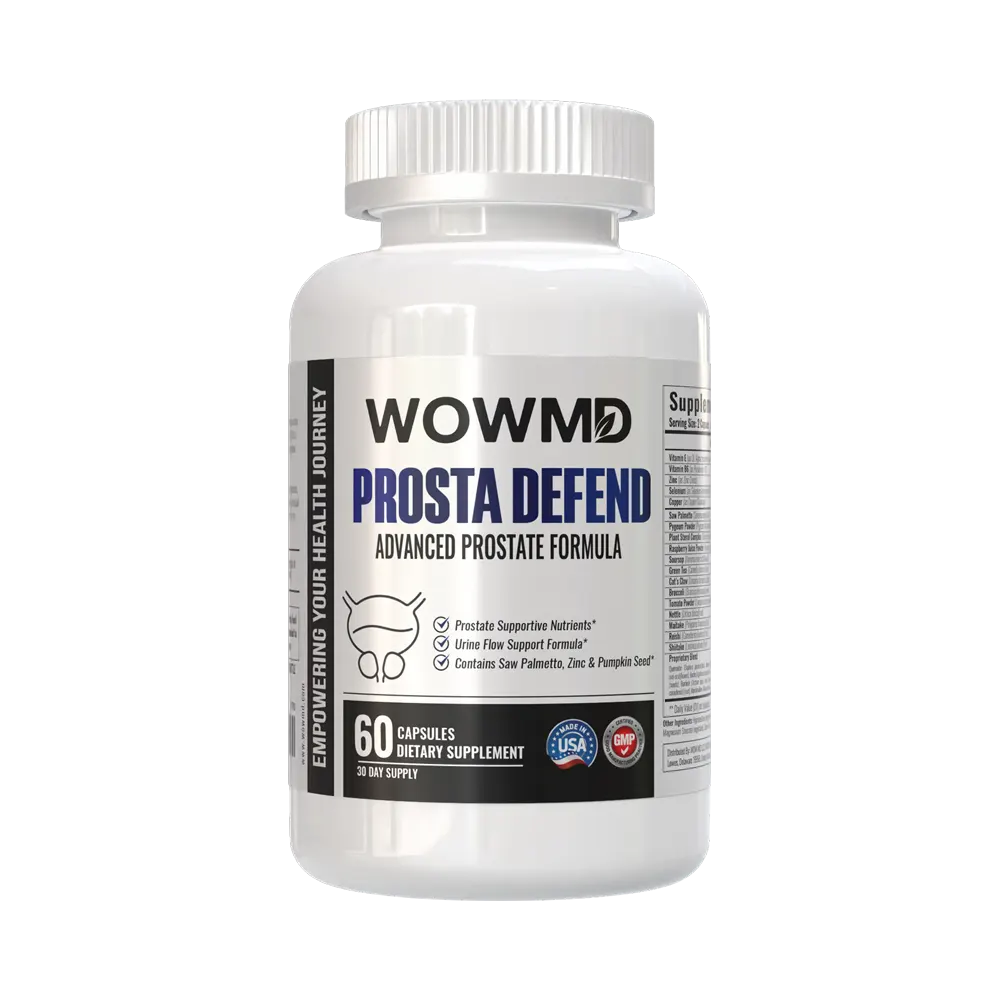
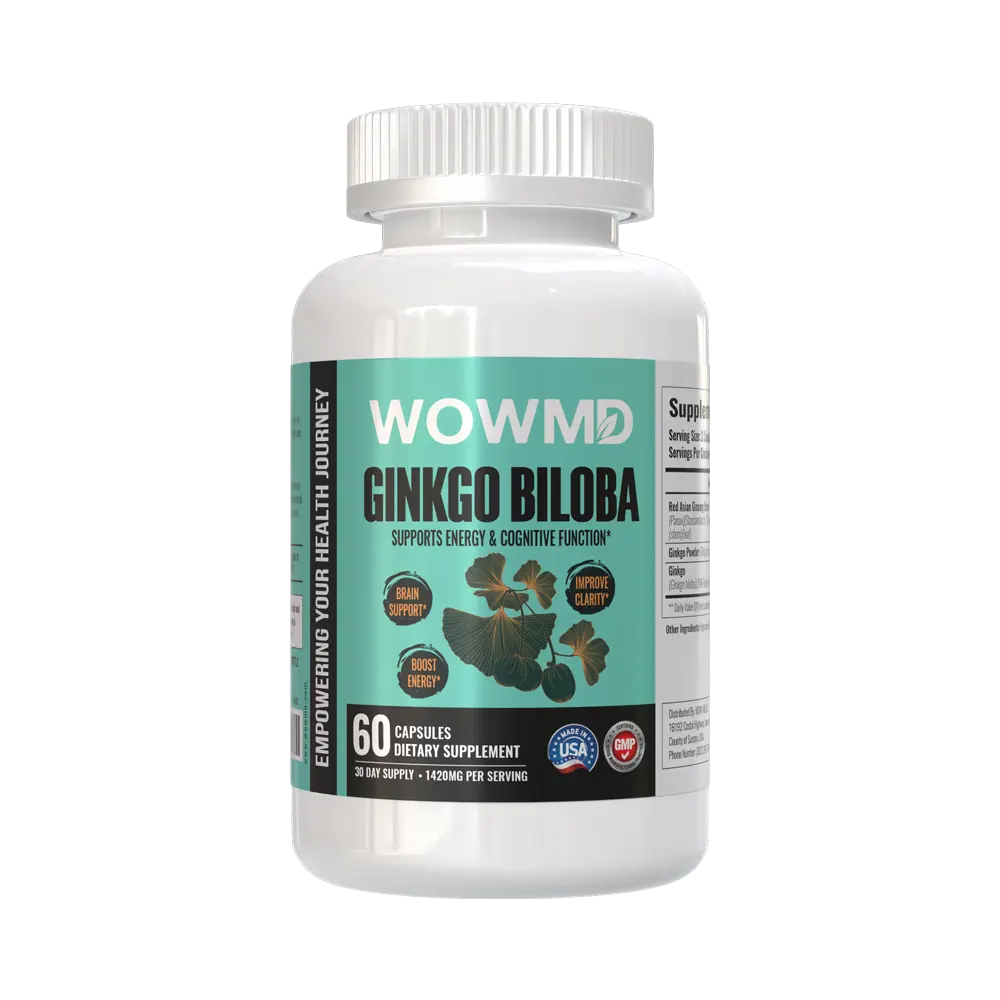



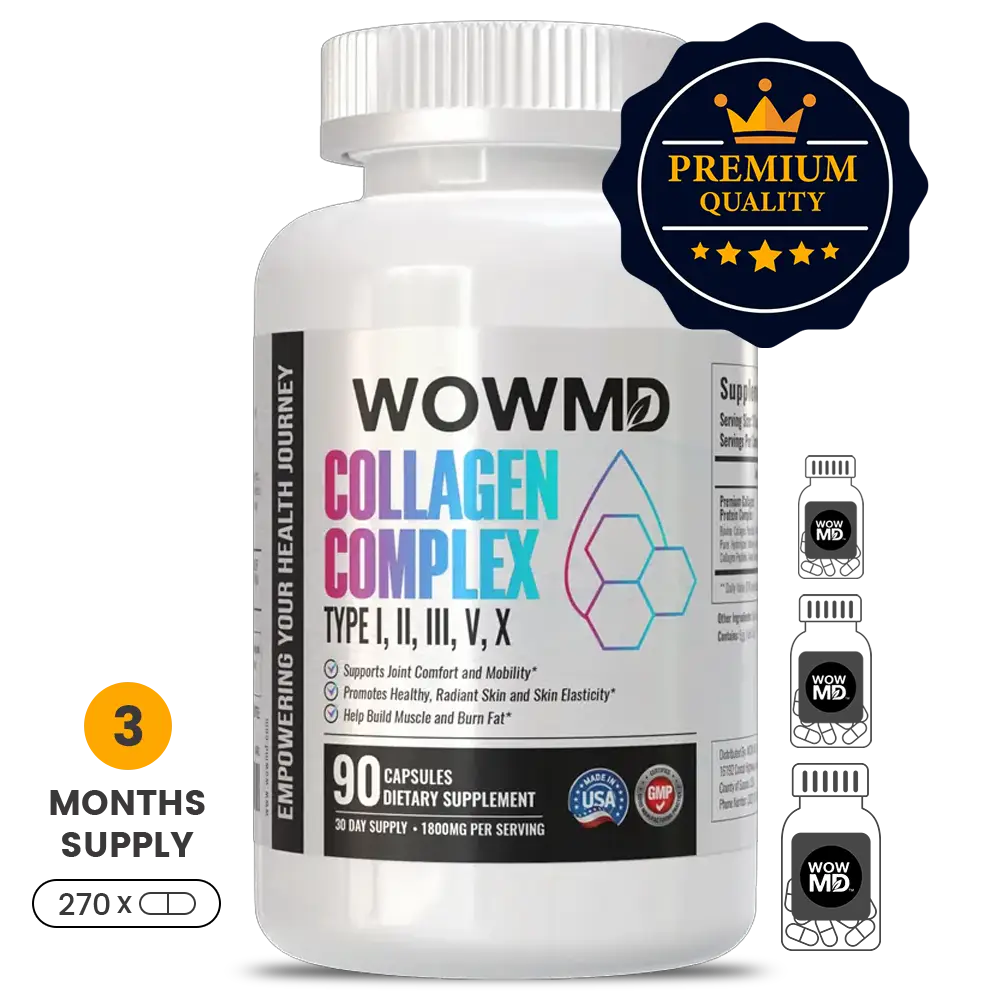

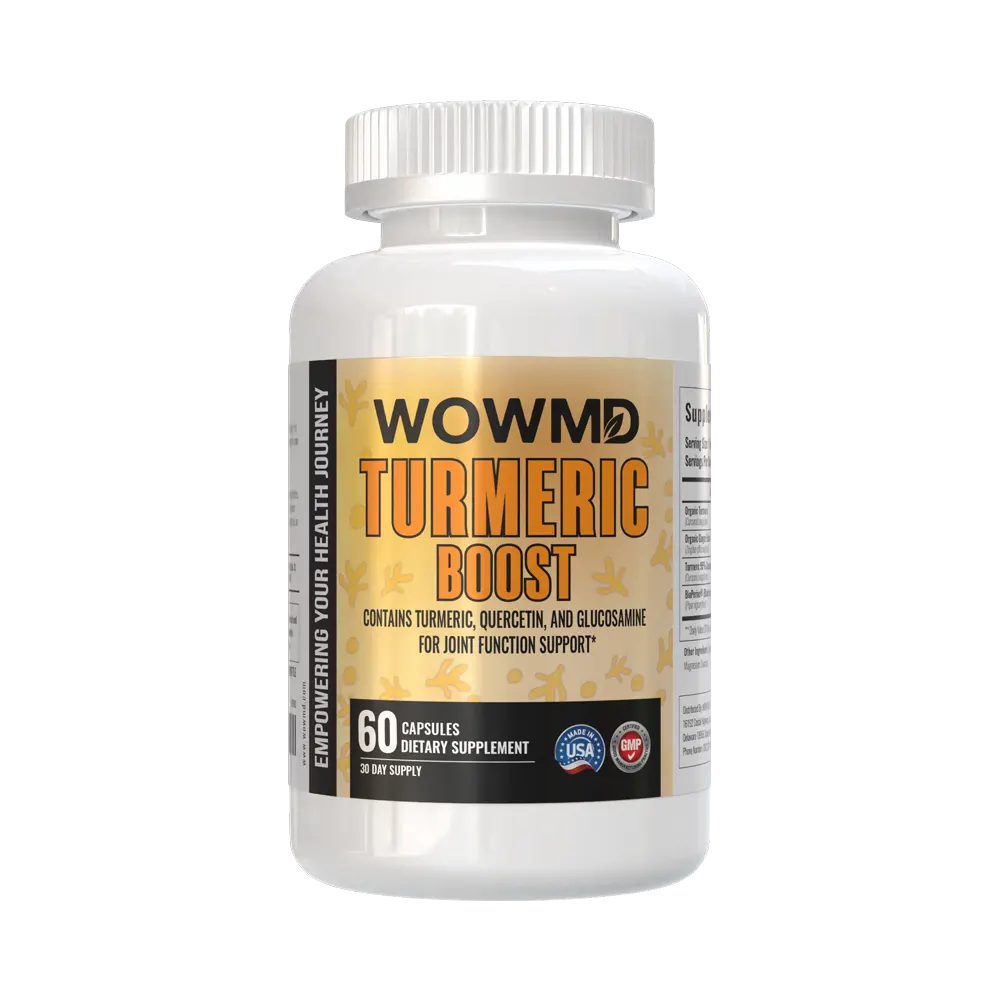









 By WOWMD Staff
By WOWMD Staff